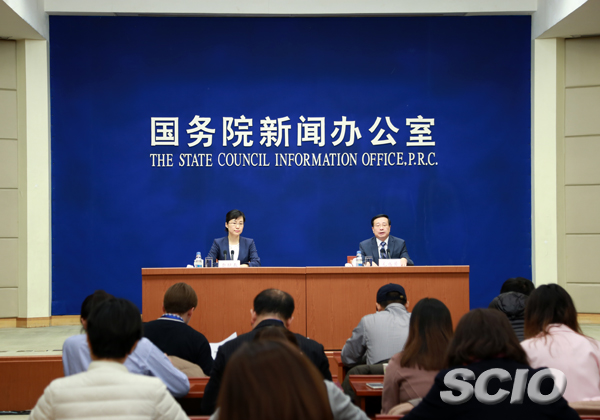China's steady economic growth creates room for policy maneuver
China's economy has held steady in the first 11 months of 2017, on track to reach this year's growth target and creating room for policy makers to step up efforts on risk control, poverty relief and pollution next year.
Data released Thursday showed fixed-asset investment (FAI) climbed 7.2 percent for January-November period, down from 7.3 percent in the first 10 months. The pace of growth has declined for eight consecutive months.

Investment in property development rose 7.5 percent from a year earlier, edging down from 7.8 percent in the first 10 months, according to the National Bureau of Statistics (NBS).
As the government maintains property purchasing curbs to contain speculation, housing sales measured by floor area recorded a slower growth of 7.9 percent in the first 11 months.
Infrastructure investment, which accounts for more than 20 percent of the total FAI, surged 20.1 percent for January-November period year on year, the pace of growth accelerating from 19.6 percent for January-October.
Industrial output also softened due to tighter environmental rules, rising 6.1 percent last month, down from October's 6.2 percent increase.
Lifted by the Singles' Day (Nov. 11) online shopping promotion, retail sales grew 10.2 percent in November, up from 10 percent the previous month.
Sales at Alibaba, China's largest e-commerce platform, hit a record high of 168.3 billion yuan (25.5 billion U.S. dollars) on Nov. 11.
"Consumption will stay robust on the back of higher incomes and is expected to stay a pillar for economic growth next year," said Li Huiyong, an analyst at Shenwan Hongyuan Securities.
Thursday's data confirmed the trend of stable and sound economic growth, as conveyed by previous statistics, including the purchasing managers' index, foreign trade and new loans.
"The country's economy has continued steady and sound development, and will maintain the trend in 2018," NBS spokesperson Mao Shengyong said.
The country's GDP grew 6.9 percent in the first nine months, above the government's target of around 6.5 percent for the year.
Wen Bin, a researcher with China Minsheng Bank, expects the country's GDP growth to be 6.8 percent this year.
Major international institutions and investment banks, including the IMF and the World Bank, both raised their forecasts for China's 2017 growth.
Analysts said the steady economic growth will give policy makers more leeway to control risks, reduce poverty and tackle pollution, which the central authorities have called "the three tough battles" for 2018.
Tighter rules on polluting factories might weigh on production, while higher borrowing costs amid enhanced financial regulation and deleveraging efforts could also have an impact on economic activity.
UBS economist Wang Tao expects more of the impact from the ongoing clean air campaign to come in December and the first quarter of 2018, which along with a softening of infrastructure investment amid tighter local government financing rules and other supply-side structure reforms, should dampen GDP growth to 6.6 percent in the fourth quarter and 6.5 percent in the first quarter of 2018.
Earlier in the day, both the country's money market rates and the central bank's open market operation rates increased, hours after the U.S. interest rate hike.
The central bank's open market operation rates were 5 basis points higher, after the U.S. Federal Reserve raised the benchmark interest rate by 25 basis points, the third increase in 2017.
In the money market, the one-month Shanghai Interbank Offered Rate, a benchmark, rose 2.94 basis points to 4.5534 percent, the highest level since June 26.
The benchmark Shanghai Composite Index edged down 0.32 percent to 3,292.44 Thursday.
A document released last week after a meeting of the Political Bureau of the Communist Party of China Central Committee, which offers a glimpse into the 2018 economic work, prioritized high-quality development, which it said was "the fundamental requirement for determining the development path, making economic policies and conducting macro-economic regulation for the present and in the period to come."
With current growth still robust, Wang Tao expects macro economic policy to stay unchanged in the next few months with no additional tightening policies.